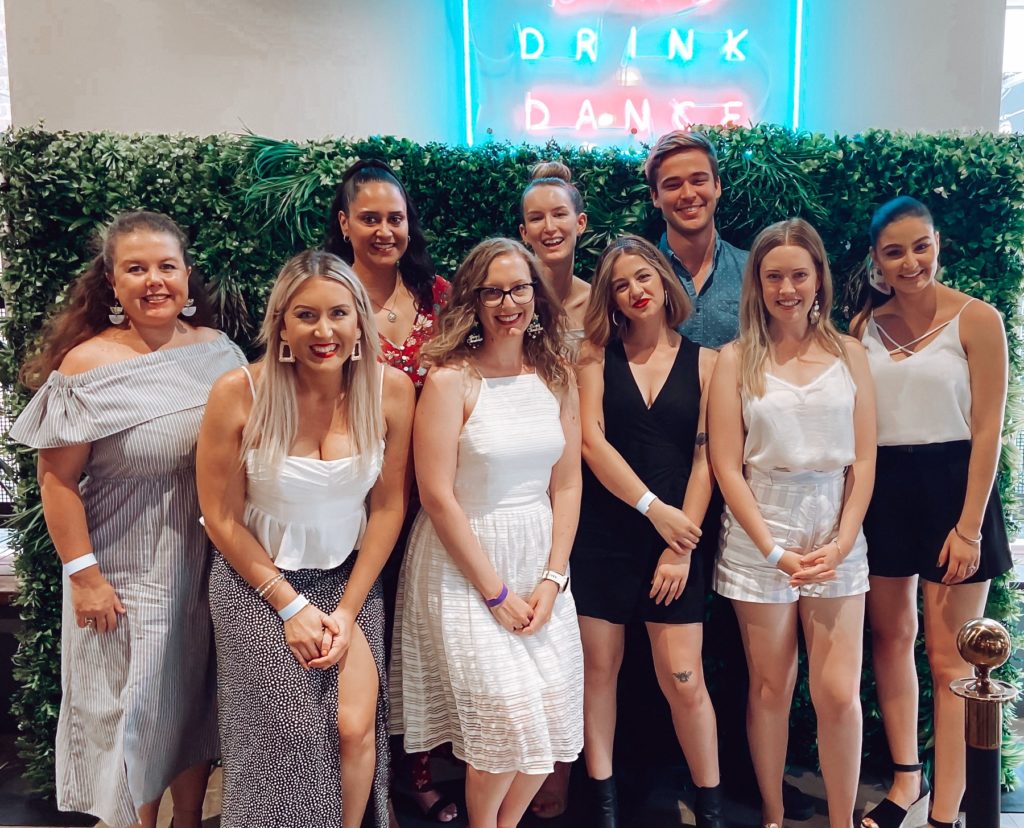In our third year of business, we really got to know ourselves and our services inside and out. By this stage, we’d started working with regular clients. We’d started getting a feel for who we LOVED working with. And who we wished we’d said no to… So here are lessons from our third year in business.
First Step: Work Out Who Your Ideal Client Is
We don’t just mean Millennial Women in business. We mean the nitty-gritty. Work out what lights them up. What drives them, and how does that align with your business values? For us, we worked out that we wanted to work with passionate business owners. Who were running their businesses because they LOVED it! It wasn’t just another revenue stream for them. It was their baby. Their values aligned with ours, they respected us and we respected them. That was the kind of relationship that we realised we craved.

Second Step: Looking Out For Red Flags
We won’t lie, this took us a LONG time to perfect. Sometimes we still miss some signs. But we’ve gotten them PRETTY nailed down (and they glow a very crimson shade of red). We’re dropping them below so you can watch out for them too:
- They try to get you to lower your prices (UM. No. Would you go into Kmart and barter with the sales assistant for a lower price? If it’s not okay at Kmart then it’s definitely not okay to do to a small business owner)
- They push your boundaries (These might look different to everyone. For us? It’s ignoring our booking system and requesting a call on the spot, or repeatedly asking to talk outside of business hours after we have already said no. It could even be ignoring your sales process and DM’ing a bunch of questions before you’re even able to decide if their business is a good fit. And don’t get us wrong, we love a DM, but there are the polite ones we get 99% of the time, and others that are just ick)
- They speak down to you (I mean, this might be an obvious one. But we’ve definitely been caught up in the excitement of a prospect and totally ignored the way they spoke to us. They should be speaking to you with respect because they are excited to work with you. You shouldn’t feel like you’re grovelling for their work. If it’s happening in the first call, then this behaviour will only continue throughout the business relationship. TRUST US).
- They speak ill of other businesses they’ve worked with* (this one needs to be taken with a grain of salt. Sometimes it’s necessary to get a full backstory, and sometimes the provider is just crap. So our advice, if they’re complaining about a competitor they’ve worked with, ask what it was specifically that they didn’t like. And if the reasons don’t sound right to you, trust your gut.
- TRUST YOUR GUT (THIS ONE has never failed us. SO many times either Hayley or Katy have messaged the other and said ohhh I’m not totally sure about this one because of X. And the few times we’ve ignored our guts, we’ve immediately regretted it. Every. Single. Time. The gut don’t lie.

Third Step: Learning To Say No.
Think of it this way, for every potential opportunity that doesn’t align with your values that you turn down, you’re making room for one that does.
Well, that sounds pretty simple, right? But if you’re anything like us and recovering people pleasers, here are a few easy ways to say no, without feeling overwhelming guilt:
- Thanks for the opportunity, but it doesn’t align with our brand vision at this time (this is great for PR / Collab opportunities that don’t align with your values)
- Thanks for the opportunity, but our calendar is pretty full at this stage (this is great for PR / Collab opportunities when you’re just so packed in you can’t fit in anything else)
- Thank you for enquiring with us, however, I don’t think we’d be the best fit for your business right now, we can recommend other killer businesses who may be able to help (the best response when you don’t think someone’s goals fit your ability to help them. But you know someone who could help them)
- Thank you for your interest in working with us. We are absolutely honoured that you want to work with us. Unfortunately, our books are getting very close to filling up, so we’re only taking on projects that we know we have the capacity to fill to the best of our ability (a nice way of avoiding the total red flags with attitude problems)
These were the biggest lessons we learned in 2019. We really hope these tips help you avoid learning these lessons the hard way! Stay tuned for next week for our next birthday confession…
